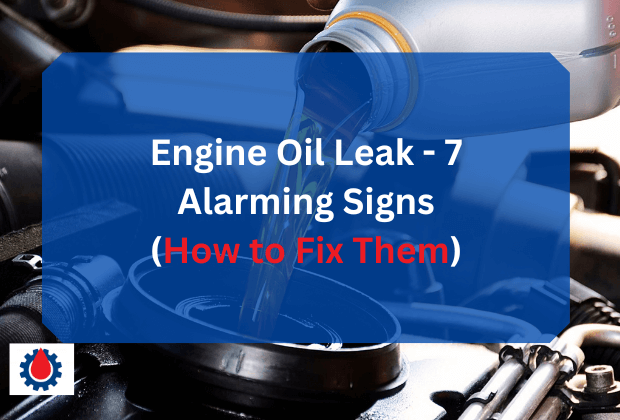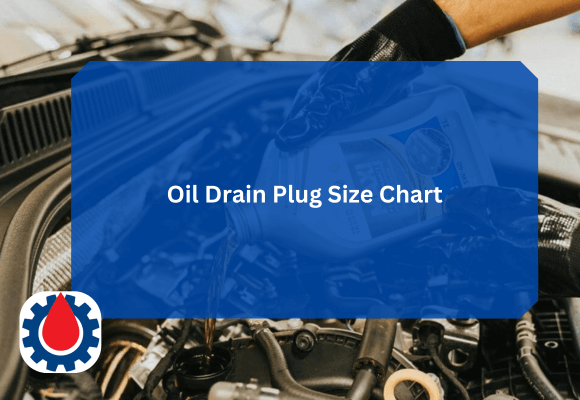Ignoring an oil leak can lead to major engine damage, reduced performance, and even total engine failure. That’s why identifying and fixing an oil leak early is critical.
In this post, we’ll explore what causes an engine oil leak, how to detect it, and the most effective ways to fix and prevent it. Let’s jump in.
Engine Oil Leak
Common Causes of an Engine Oil Leak:
1. Worn or Damaged Gaskets and Seals
Over time, the rubber and metal gaskets that seal your engine can deteriorate due to heat and pressure. When these gaskets crack or wear out, oil finds its way out.
2. Loose or Broken Oil Pan
The oil pan is where the engine oil is stored. If it’s cracked or the bolts are loose, you’ll likely notice oil dripping beneath your car.
3. Faulty Valve Cover Gasket
This gasket seals the area where the valve cover meets the cylinder head. It’s one of the most common sources of oil leaks, especially in older vehicles.
4. Improperly Installed Oil Filter
A poorly fitted or loose oil filter can allow oil to leak out during operation. Make sure the filter is the right size and is tightened properly.
5. Oil Plug Issues
The drain plug at the bottom of the oil pan can become stripped or loose, especially during oil changes. This can lead to persistent leaks.
Related Engine Burning Oil Treatment(5 Best Additive to Stop Oil Burning)
Signs You Might Have an Engine Oil Leak
Catching an oil leak early can save you from expensive repairs. Here are some warning signs to look for:
1. Oil Spots on the Ground
If you see dark brown or black spots under your car, especially after it’s been parked overnight, it’s a clear sign of an oil leak.
2. Burning Oil Smell
Oil that leaks onto hot engine parts creates a sharp, burnt odor. If you smell something strange when driving or after shutting off the engine, it’s time to investigate.
3. Low Oil Levels
Regularly checking your dipstick can reveal if your oil level is consistently dropping. This is often the first clue of a slow leak.
4. Smoke from the Engine Bay
Oil leaking onto the exhaust manifold can produce smoke. This can be dangerous and should be addressed immediately.
5. Engine Overheating
Oil helps cool the engine. Without enough oil, friction and heat increase, leading to overheating and possibly severe damage.
Related Engine Oil Route – How Engine Oil Travels(With Diagram)
How to Diagnose an Oil Leak
You don’t always need a mechanic to tell if you have an oil leak. Here are some easy steps to confirm it:
- Visual Inspection: Look around the oil pan, valve covers, and gaskets for signs of wetness or buildup.
- Use UV Dye: You can add UV dye to your engine oil and use a UV flashlight to trace the source of the leak.
- Check Oil Filter and Drain Plug: Make sure they are tight and undamaged.
- Monitor Oil Levels: Track how often you’re topping off oil. A sudden increase in oil consumption is a red flag.
Related Priming Engine Oil Pump(How to do it right way & Tools)
How to Fix an Engine Oil Leak
1. Replace Worn Gaskets and Seals
This is the most common repair. Replacing a valve cover gasket or oil pan gasket can usually be done with basic tools, though some areas may be hard to access.
2. Tighten Bolts and Plugs
Sometimes, a leak is as simple as a loose bolt. Check the oil pan, drain plug, and oil filter for proper tightness.
3. Use an Oil Stop Leak Additive
These are temporary solutions that can swell seals and reduce leaks. They’re not a long-term fix but may help if the leak is minor.
4. Visit a Mechanic
If you’re unsure or the leak is severe, get professional help. Some leaks—like those from the rear main seal—require engine disassembly.
Related How to Dispose of Engine Oil(Legal requirements & Free Disposal Place)
Related Oil Leak Between Engine and Gearbox(5 Causes + Solutions)
How to Prevent Future Oil Leaks
1. Stick to a Regular Maintenance Schedule
Change your oil, replace gaskets, and check for wear during routine service.
2. Use High-Quality Engine Oil
Cheap oil breaks down faster and may lead to leaks. Use the oil grade recommended by your manufacturer.
3. Inspect Seals and Gaskets
Keep an eye on older components. Replacing them before they fail can save you money.
4. Avoid Harsh Driving
Rapid acceleration, extreme heat, and poor road conditions can stress engine components and lead to leaks.
Is It Safe to Drive with an Oil Leak?
In short, it depends. A small, slow leak might not pose an immediate danger, but any loss of oil will eventually impact your engine. Larger leaks can cause serious damage in minutes. If your oil light comes on or you smell burning oil, pull over and check your oil level immediately.
Related How Does Triax Engine Repair Oil Work(Save Your Engine and Wallet)
FAQ
What causes an engine oil leak?
Engine oil leaks are commonly caused by:
- Worn or damaged gaskets and seals, especially valve cover or oil pan gaskets
- Cracked or corroded oil pans
- Loose or stripped drain plugs or oil filters
- Aging engine components are exposed to heat and pressure over time
- Improper installation of parts like the oil filter or gaskets
External impacts or poor maintenance can also lead to oil leaks.
Are engine oil leaks expensive to fix?
The cost of fixing an engine oil leak can vary widely:
- Minor leaks (e.g., loose oil filter or plug): $20–$50
- Moderate leaks (e.g., valve cover gasket): $100–$300
- Major leaks (e.g., rear main seal): $500–$1,200+
The price depends on the part affected and the labor required. Some leaks require engine disassembly, making them costlier.
Related How to Get Engine Oil Out of Clothes(6 Proven Methods)
How to fix an oil leak from an engine?
To fix an engine oil leak:
- Identify the leak’s source (visually or using UV dye).
- Tighten loose bolts on the oil pan, drain plug, or valve covers.
- Replace worn gaskets or seals—common ones include valve cover and oil pan gaskets.
- Use high-quality parts and oil during replacement.
- Clean the engine area to prevent buildup and future damage.
If unsure, consult a professional mechanic to avoid further engine damage.
How to stop oil leak in engine without replacing gasket?
If you’re not ready to replace the gasket, try these temporary fixes:
- Oil stop-leak additives: These chemicals can swell and condition seals to slow or stop minor leaks.
- Seal conditioners in high-mileage oils: Help rejuvenate aging seals.
- Tighten bolts and clean sealing surfaces: Sometimes a small adjustment reduces seepage.
- Monitor oil level frequently to avoid running low.
These are temporary solutions and won’t work for severe or long-term leaks.
Related Engine Oil Change Soon(Here’s How Long You Can REALLY Wait!)
Can an oil leak destroy an engine?
Yes, an untreated oil leak can completely destroy an engine. Here’s how:
- Loss of lubrication causes internal friction, overheating, and rapid wear.
- Low oil levels can seize the engine.
- Oil on hot parts like the exhaust can lead to smoke or even fires.
- Contaminated parts may break down over time due to sludge buildup.
Prompt repair is critical to avoid costly or irreversible engine damage.
Final words
An engine oil leak might seem like a minor issue, but it can quickly snowball into a major expense if left untreated. The key is early detection and prompt repair. By knowing what signs to watch for and understanding how oil leaks happen, you can keep your engine in top shape and avoid costly breakdowns.




